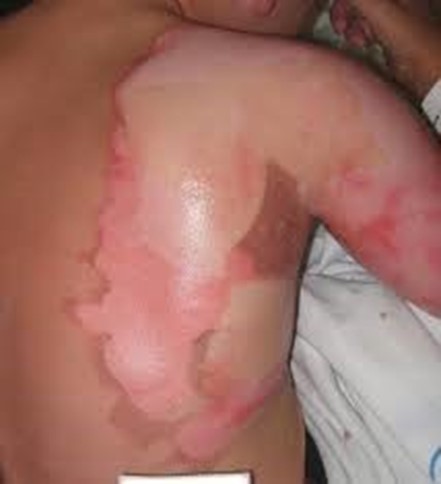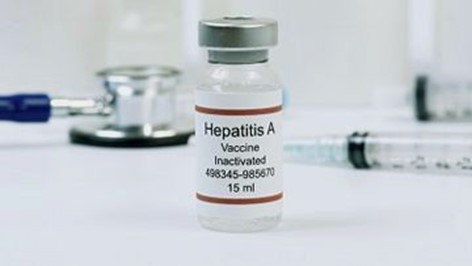A nurse is caring for a client in the emergency department who experienced a full-thickness burn injury to the lower torso 1 hr ago.
Which of the following findings should the nurse expect?
Urinary diuresis.
Hypotension.
Decreased respiratory rate.
Bradycardia.
The Correct Answer is B

A full-thickness burn injury can result in fluid loss and low blood volume (hypovolemia), which can lead to hypotension.
Choice A, Urinary diuresis, is not the correct answer because it refers to increased production of urine and is not a common symptom of a full-thickness burn injury.
Choice C, Decreased respiratory rate, is not the correct answer because it refers to a decrease in the number of breaths per minute and is not a common symptom of a full-thickness burn injury.
Choice D, Bradycardia, is not the correct answer because it refers to a slow heart rate and is not a common symptom of a full-thickness burn injury.
Nursing Test Bank
Naxlex Comprehensive Predictor Exams
Related Questions
Correct Answer is A
Explanation
Hepatitis A is a highly contagious liver infection caused by the hepatitis A virus and is most likely to be contracted from contaminated food or water or from close contact with a person or object that’s infected.
The hepatitis A vaccine can protect against hepatitis A and is recommended for travelers to high-risk areas.
Choice B is incorrect because hepatitis A is not transmitted through blood-to-blood exposure but rather through ingestion of contaminated food or water or through direct contact with an infectious person.
Choice C is incorrect because antibiotics are not used to treat viral infections such as hepatitis
A. Choice D is incorrect because the incubation period of hepatitis A is typically 2-6 weeks, not 5-10 days.

Correct Answer is C
Explanation
This statement indicates an understanding of the teaching because shaking the inhaler helps to mix the medicine inside the canister.

Choice A is incorrect because it is not necessary to clean the cap of the inhaler once per week.
Instead, it is important to clean the inhaler at least once a week or as directed.
Choice B is incorrect because one should inhale the medication slowly, not quickly.
Choice D is incorrect because one should wait 1 minute between puffs, not 15 seconds.
Whether you are a student looking to ace your exams or a practicing nurse seeking to enhance your expertise , our nursing education contents will empower you with the confidence and competence to make a difference in the lives of patients and become a respected leader in the healthcare field.
Visit Naxlex, invest in your future and unlock endless possibilities with our unparalleled nursing education contents today
Report Wrong Answer on the Current Question
Do you disagree with the answer? If yes, what is your expected answer? Explain.
Kindly be descriptive with the issue you are facing.
